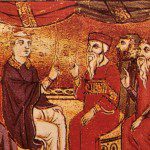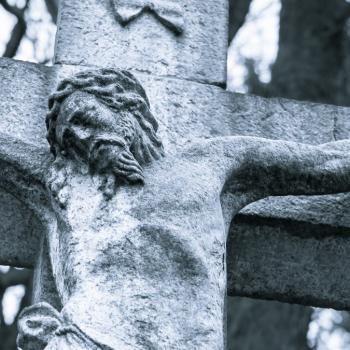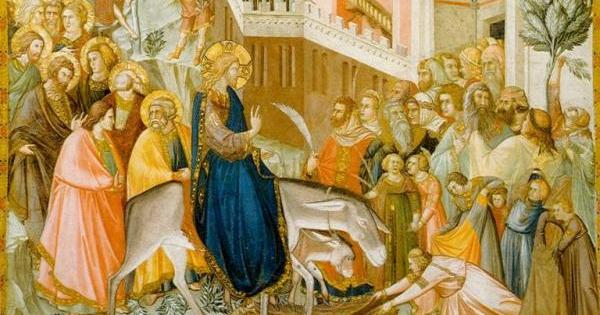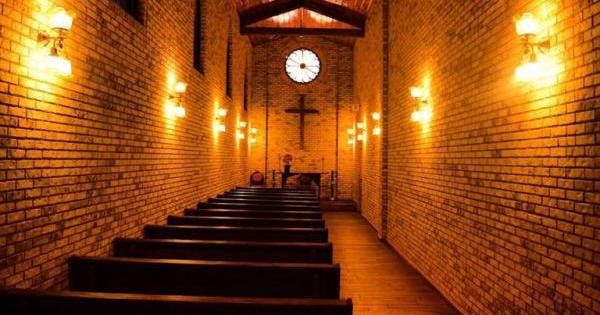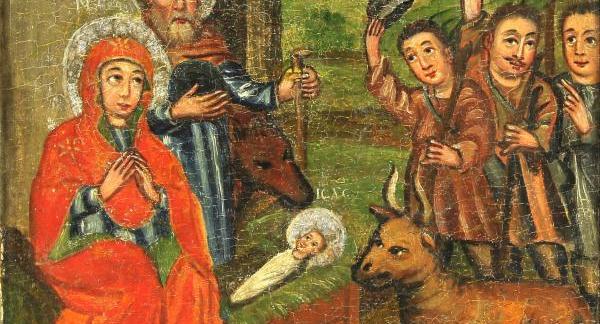Soon after I began my “Leaving Evangelicalism” blog series a few months ago, a Facebook friend messaged me with a question.
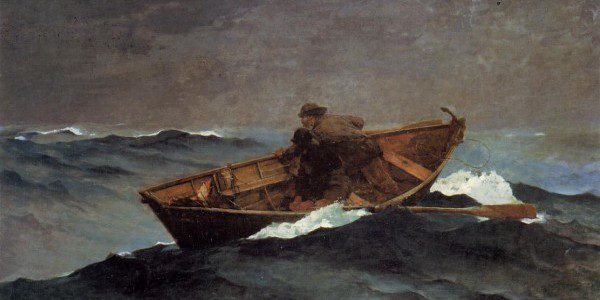
It’s a very good question, so I’ll post it in full:
One question I hope you will address is – with the certainties of evangelicalism gone, why are you still a Christian? As I read the writings of scholars like Pete Enns, John Walton, Christian Smith and yourself, I find myself no longer able to define myself as evangelical unless I do some serious redefining of terms. But I also find myself somewhat adrift, if truth be told, feeling like I’m headed toward life as an existentialist agnostic rather than toward any kind of vibrant progressive Christianity. If the evangelical certainties and apologetics re. the existence of God, the divinity of Jesus, the inerrancy of the Bible etc. aren’t tenable then why/how be a theist rather than a non-theist? Obviously it’s possible, as seen by the existence of mainline, progressive and liberal forms of Christianity. But is it intellectually compelling?
First, I’ll just say that I resonate with the image of being “adrift.” I resonated with this long before I sensed a growing dissonance between my own faith and theology journey and that mode of Evangelical certainty which I had come to know so well.
It was Kierkegaard who helped me work through my own “crisis of faith,” and his image of being adrift out on the raging waters of intellectual/cognitive/”objective” uncertainty. As he put it in Concluding Unscientific Postscript:
If I am capable of grasping God objectively, I do not believe, but precisely because I cannot do this I must believe. If I wish to preserve myself in faith I must constantly be intent upon holding fast the objective uncertainty so as to remain out upon the deep, over seventy thousand fathoms of water, still preserving my faith.
Through my journey of re-thinking faith, I began to realize that the Evangelical theological machinery of rational apologetics, biblical inerrancy, epistemological and theological certainty, and an exclusivist outlook toward those not in the fold, actually inhibits the development of faith rather than facilitates or encourages it. This is because many (certainly not all) conservative evangelicals tend to think of faith as mediated through this modes of thought, despite all the language of personal relationship with Jesus. Or, if faith is not mediated through them, it is at the least sustained through them.
What I have discovered is that by letting go of these strongholds for the certainty of faith and theology, the journey that opens up is far more invigorating and life-giving than that which I experienced under the protective and defensive and–in many ways–“objective”–mode of faith in conservative Christianity.
Yes, there are a host of questions that emerge once one lets go of inerrancy, a literalist mode of biblical interpretation, creationism, an exclusivist view of salvation, and so on. My Facebook friend probably had those kind of questions in mind. But the bigger question he’s asking is, “Why be a Christian at all?”
Why not just be a good person who perhaps looks back with sentimentality on the earlier influence of Christianity on one’s life, but who realizes that I’ve grown beyond the need for the mythologies, rituals, and theologies of the Christian religion?
Progressive Christianity is indeed “intellectually compelling,” to answer my friend’s last question. Whether exploring the intersection of science and theology, or liberation and feminist views of Christology, anthropology, sin/salvation, theologies of creation and eschatology, questions of providence and God’s relation to the world, and the questions of the application of theology to politics, public issues, ethics, and on and on, the theologies that have emerged from or coalesce around progressive Christian questions are endlessly fascinating. Where and how they cohere is another question and is of course open for continued debate. But in progressive Christianity, the field is ripe to engage the questions and problems of culture and society with an open-handedness and a a receptive inquisitiveness.
On a more personal note, I am still a Christian because through Christianity I have a hope that I cannot imagine finding elsewhere. This is not to say that I can’t imagine others finding hope elsewhere (countless people do) in other religions or even in no religion at all–I cannot step in their shoes. But I can speak for myself.
I have often resonated with Peter’s answer to Jesus, when Jesus asked the twelve if they planned to stop following him–like the many others who were leaving him:
“Lord, to whom can we go? You have the words of eternal life. We have come to believe and know that you are the Holy One of God.” (John 6:68).
My mom died recently. It was over seven years after her Alzheimer’s diagnosis. We watched her memories, her abilities, and so much of her happiness and joy slowly fade during those years. Anyone who knows someone with dementia knows how excruciating and sad it is, to experience the loss of a loved one in this way, over time. A “death before death.”
But as we celebrated her life, just a few weeks ago now, we remembered many of the stories and accomplishments and moments of laughter and joy that she had forgotten in her final years of life. And we talked about hope. The hope of eternal life. The hope of resurrection. The hope of the “death of death,” and of life after death. We talked about our belief that we would see her again–and that she would be whole again.
Near the end of the service, with a trembling voice, I did my best to read through Revelation 21.
See, the homeof God is among mortals.
He will dwell with them;
they will be his peoples,
and God himself will be with them;
he will wipe every tear from their eyes.
Death…
Here I stopped, because the word struck me with such force. Tears had filled my eyes. I tried to regroup.
Death…will be no more;
mourning and crying and pain will be no more,
for the first things have passed away.
That sums up, for me, why I’m still a Christian. Hope. Hope that death is not the final word. Hope that injustice will not prevail. Hope that good will overcome evil in the end. Hope that sickness will be healed, memories restored. Hope that all will be saved, all reconciled, creation (in whatever manner) will be renewed and restored.
This is a way of being Christian, in my view, that does not depend on a framework of certainty or of rigid doctrinal boundaries. In fact, it cannot depend on those things, otherwise hope is not hope, and faith is not faith.
It’s a way of being Christian that is oriented around the centrality of Jesus–his life, death, and resurrection, all of a piece. It’s an approach to Christianity the prioritizes love, peace, grace, and hope; that recognizes the reality and pervasiveness of sin (in all of us) and that reckons with, rather than ignores, the “problem of evil.” It’s involves a view of God that allows God to be God; meaning, beyond our ability to capture with words–even theological ones. It’s a view of the gospel that sees the good news as God reconciling with all of creation through the suffering love of Jesus.
But it’s a kind of Christianity that’s also OK with the not-knowing, with the recognition that we do not have the total or final say on truth, on God, on questions of meaning and salvation.
To reference Kierkegaard again, this Christianity is the “truth that is true for me.” This is not necessarily to say that Christianity is not also Truth for All, or the Absolutely True, or the Final and Ultimate Truth. But little, individual, finite people that we are–we cannot know this, one way or the other. It is enough, for me, that it is the “truth that is true for me.”
Out on 70,000 fathoms and all. But hoping, trusting, believing.
That’s the kind of Christianity that compels me. That’s why I’m still a Christian.
Stay in the Loop! For more theology and society discussion and posts, like/follow Unsystematic Theology on Facebook

